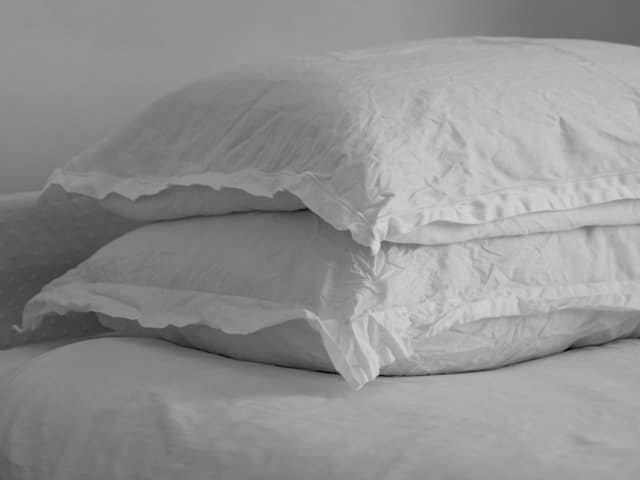A restful night’s sleep is crucial for overall well-being. It rejuvenates the body, sharpens the mind, and prepares you for the day ahead. Factors like limiting screen time before bed, managing stress, and maintaining a consistent sleep schedule contribute to better sleep quality.

While we often consider the negative effects of certain foods, cleaning chemicals, and everyday products, we may overlook the potential dangers lurking in our pillows. Pillows can harbor chemicals that adversely affect health.
Flame retardants are applied to materials to prevent or slow the spread of fire. However, according to the National Institute of Environmental Health Sciences (NIH), these chemicals can disrupt endocrine and thyroid functions, impair the immune system, affect reproductive health, and even contribute to cancer. They may also have adverse effects on fetal and child development and neurobehavioral functions.

VOCs are gases emitted from certain solids or liquids, including adhesives used in pillows and the fabrics covering them. Prolonged exposure to VOCs can lead to various health issues, emphasizing the need for awareness about the materials used in our bedding.
Over time, pillows collect dead skin cells, oils from the skin, and dirt. These conditions create an ideal environment for mites, bacteria, mold, and fungi, which can exacerbate allergies and other health concerns.
Memory foam and synthetic fiber pillows, such as those made from polyester, are more likely to contain harmful chemicals. Opting for pillows made from natural materials like bamboo or buckwheat can reduce exposure to these toxins. Always read labels carefully to ensure you’re choosing products made from safe, natural materials.
